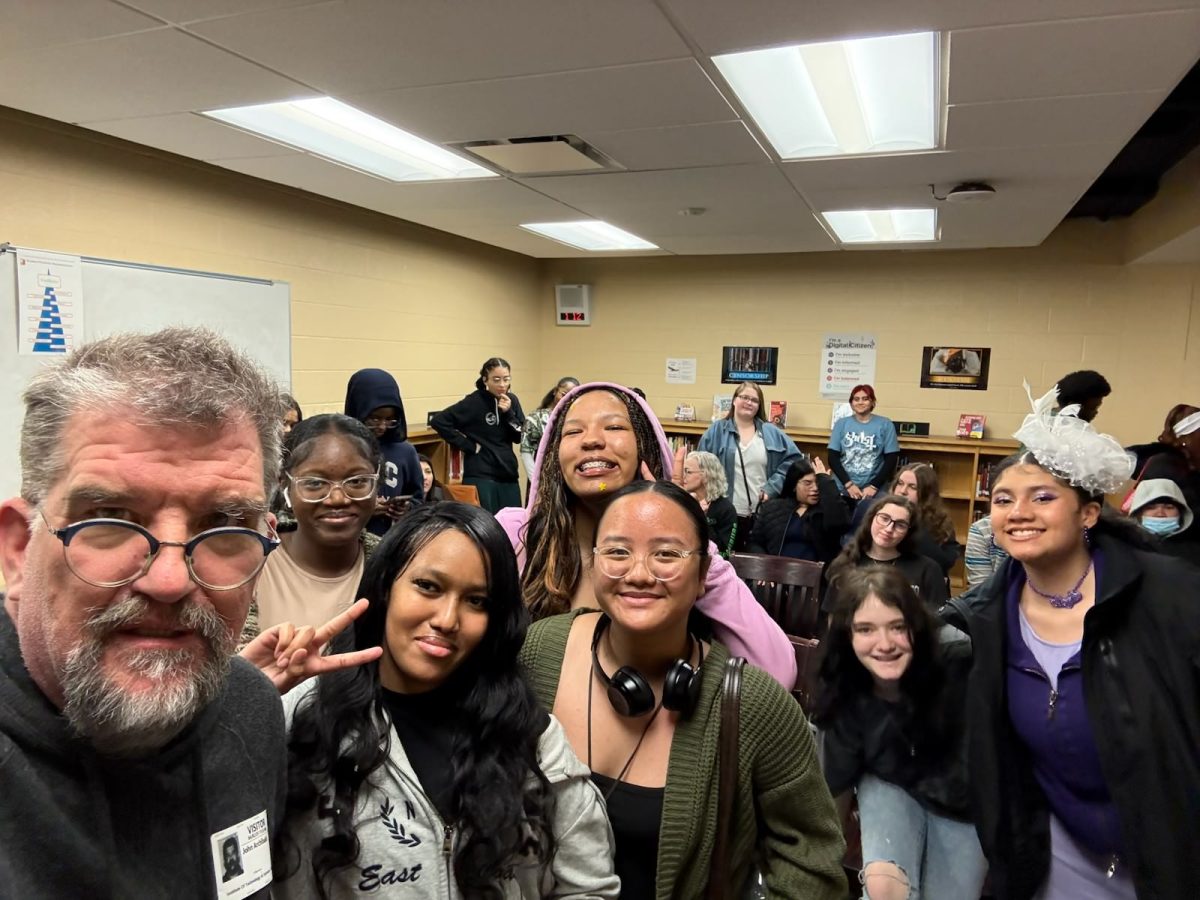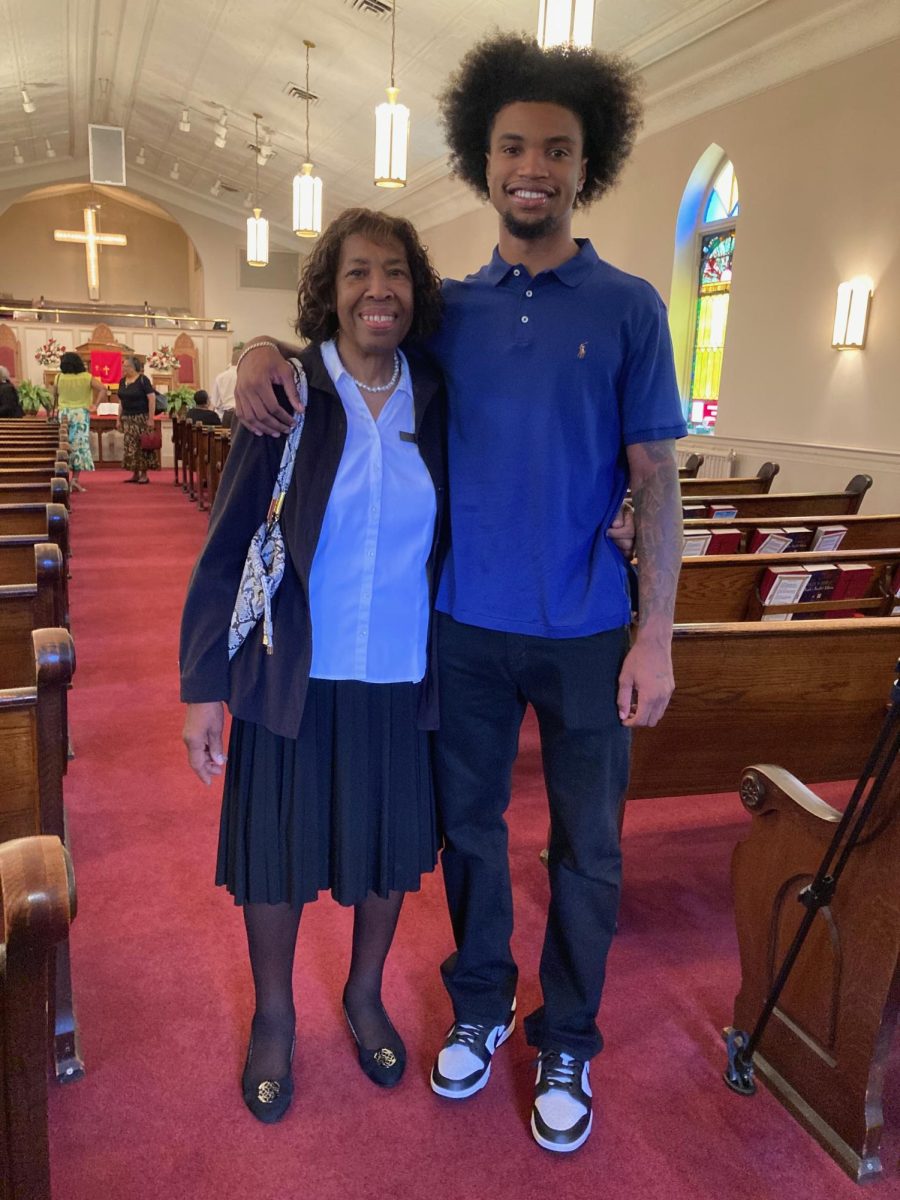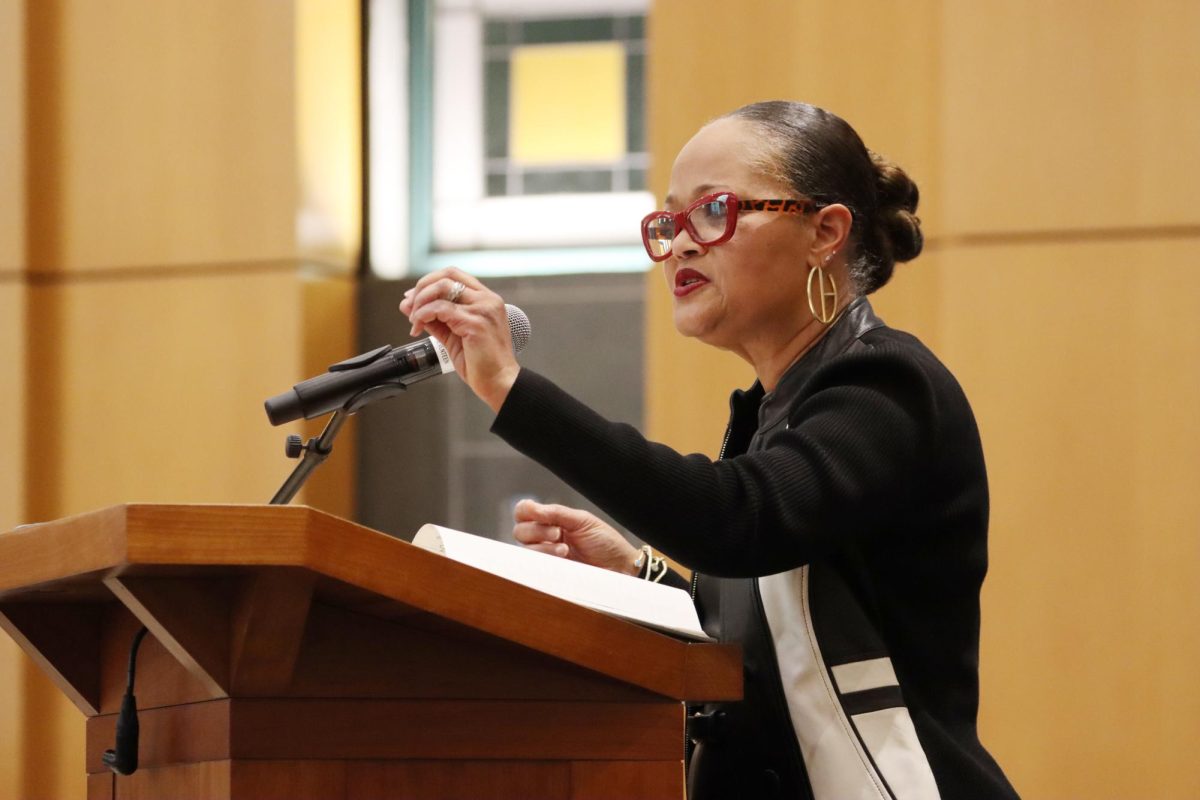Hushed conversations and the sounds of people folding up their umbrellas rippled across Grewen Auditorium on the evening of April 2. I craned my neck to see the evening’s speakers from my seat in the back row – one of the only seats left in the auditorium.
Like me, members of the Le Moyne Community were waiting to hear two-time Pulitzer Prize winner John Archibald and Le Moyne’s Journalist-in-Residence, Sean Kirst, discuss how journalism is changing. Their conversation was moderated by Le Moyne professor Michael Streissguth. Archibald, Kirst, and Streissguth were introduced by future Editor-in-Chief of The Dolphin, Declan Sommer.
Archibald did the session as part of a visit to Le Moyne that also included visiting many classes, an interview with current Dolphin editor-in-chief Carly Nicolai on LCTV, a session with dozens of aspiring Syracuse city school writers, a conversation with fellow journalists at Syracuse.com and a signing of his memoir at the downtown Parthenon Books.
At Grewen, I was struck by one of Archibald’s powerful stories about building relationships with your readers. Archibald described that he once had three readers disagree with him and that over time he was able to build good relationships with each of them. These friendships led to Archibald speaking at all three of their funerals.
Archibald reflected on the changing culture of journalism and how people take to social media to spread hateful discourse. Archibald said “people are not ashamed to act on their worst impulses.”
The changing culture of journalism also includes people not even trusting news sources anymore. Archibald revisited this point when he was interviewed by my 300-level Communications class on April 3.
“We have to do better telling straight news without any slant,” Archibald said. I asked Archibald about how he manages with people who express their dislike for what he writes. He said: “If you write something that everyone agrees with then you’re a bad
journalist… it’s dangerous to write to people who like you – that’s censorship.”
In fact, Archibald said that the best thing readers can tell him is that they disagree with him, but they will read him anyway: “My point is not to make you think like me.”
It was an honor to hear Archibald not once but twice, especially given his accomplishments. Archibald has won two Pulitzer Prizes at Al.com, the second one while working with his son, which has never been done before.
“It was awesome,” he said of his gratitude and joy about those awards. “It doesn’t happen a lot outside the major U.S. (cities), and it happened twice.”
At the end of my class’ interview, Archibald told the aspiring journalists that his work still remains fun: “I can’t recommend it enough.”



